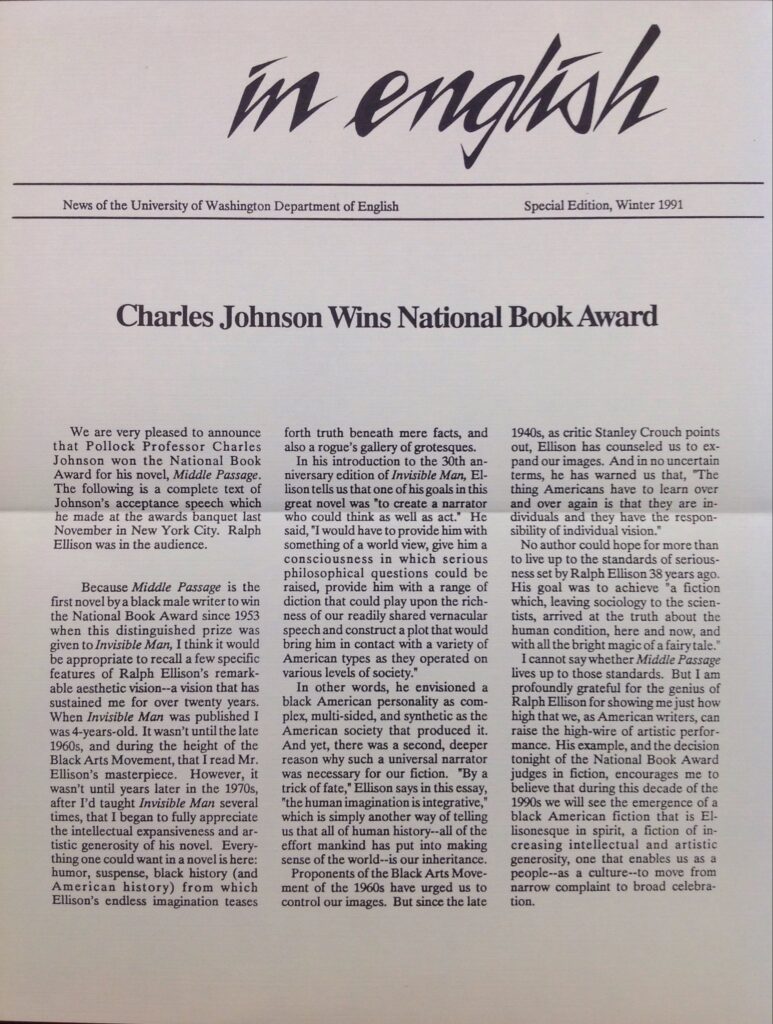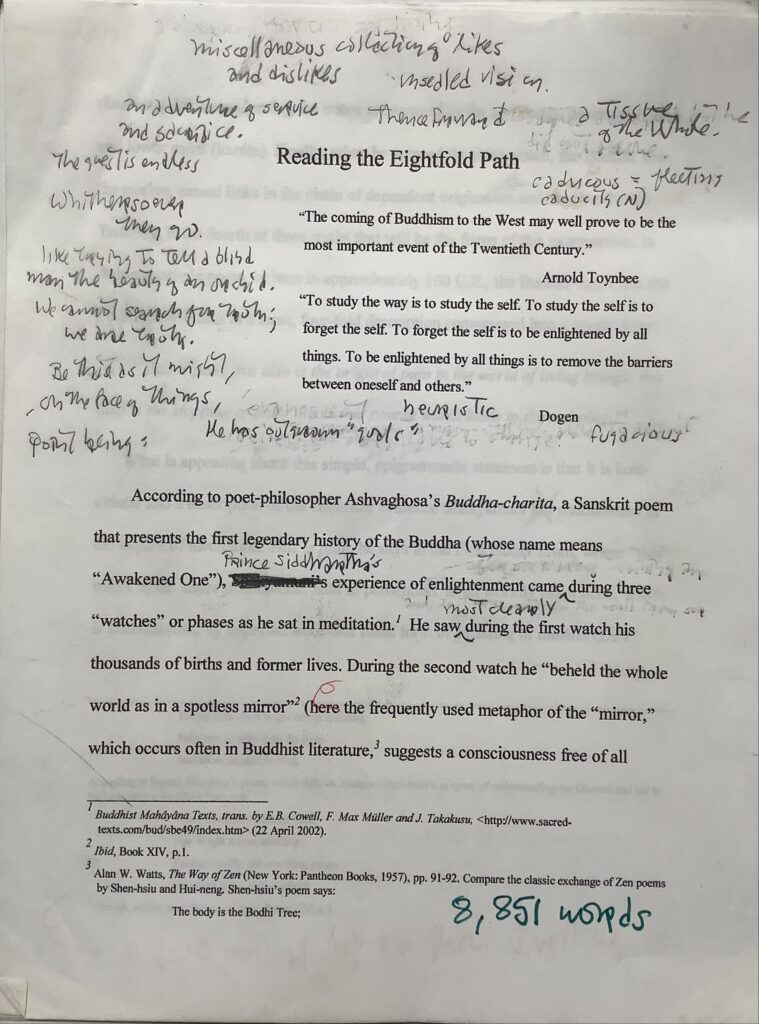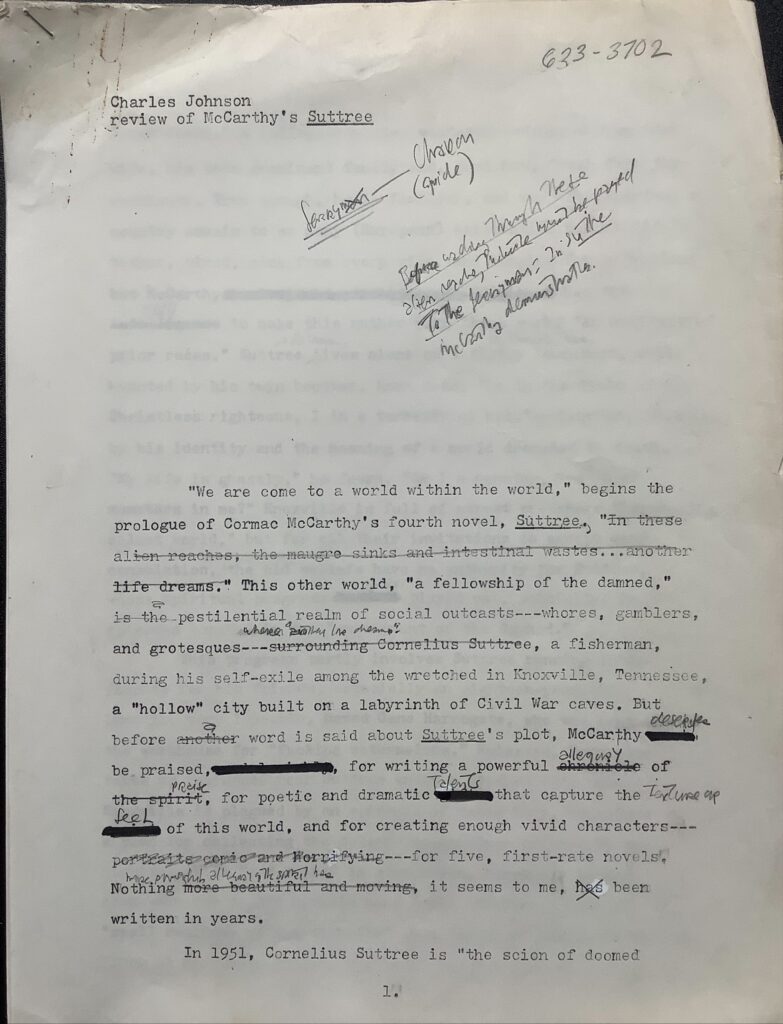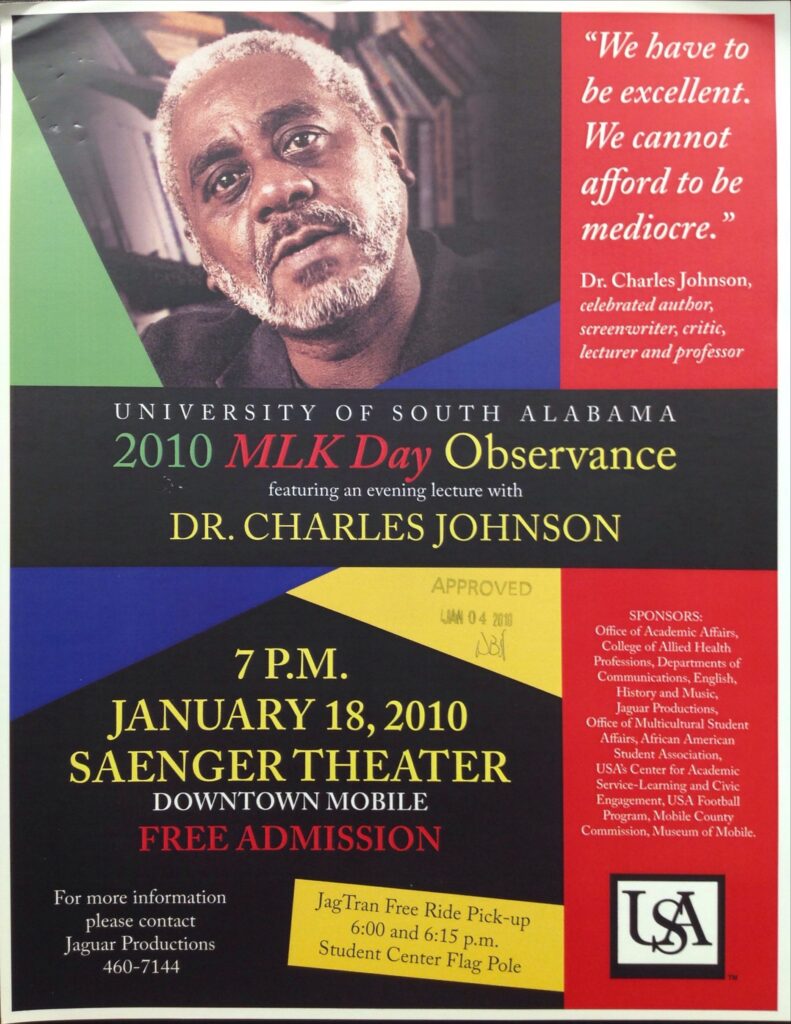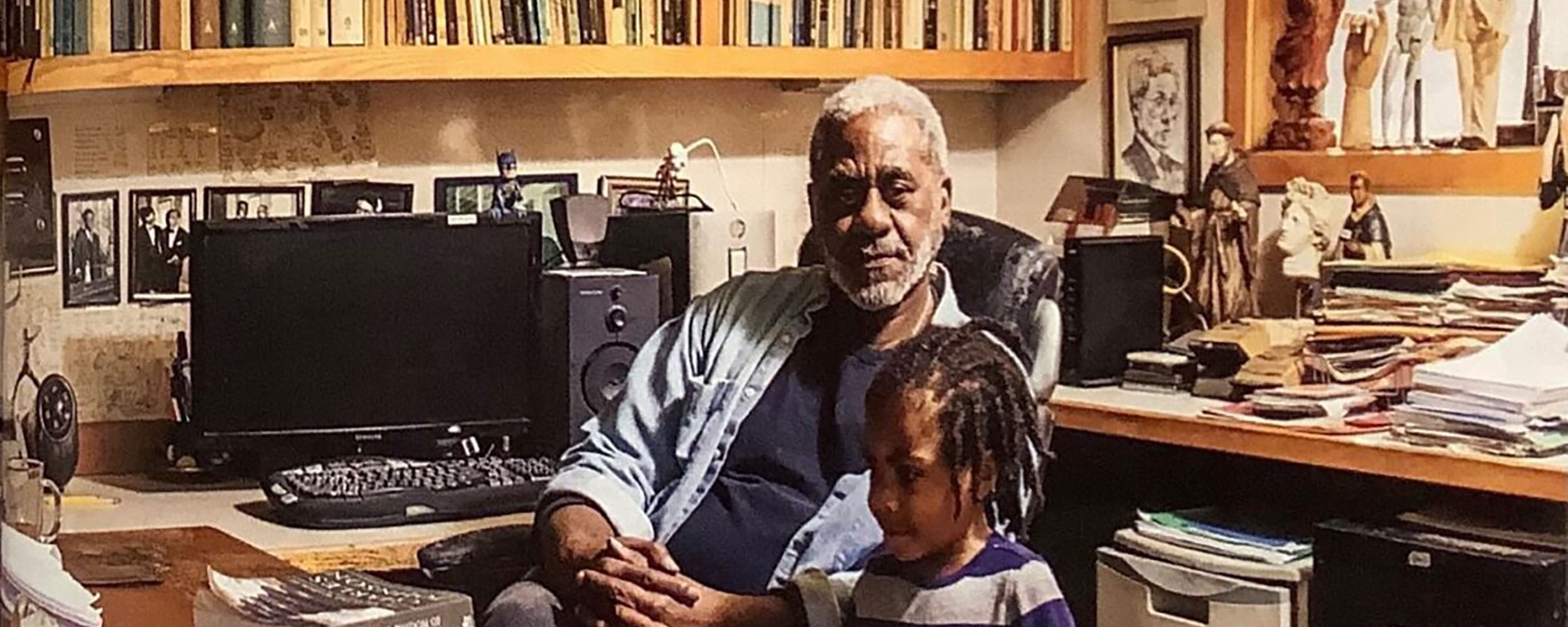
Preview of the Charles Johnson Papers
We are thrilled to be adding the Charles Johnson Papers to the Julian Edison Department of Special Collections and to have Johnson now associated with the Modern Literature Collection and the D.B. Dowd Modern Graphic History Library. See our recent announcement for more information about Johnson and the acquisition.
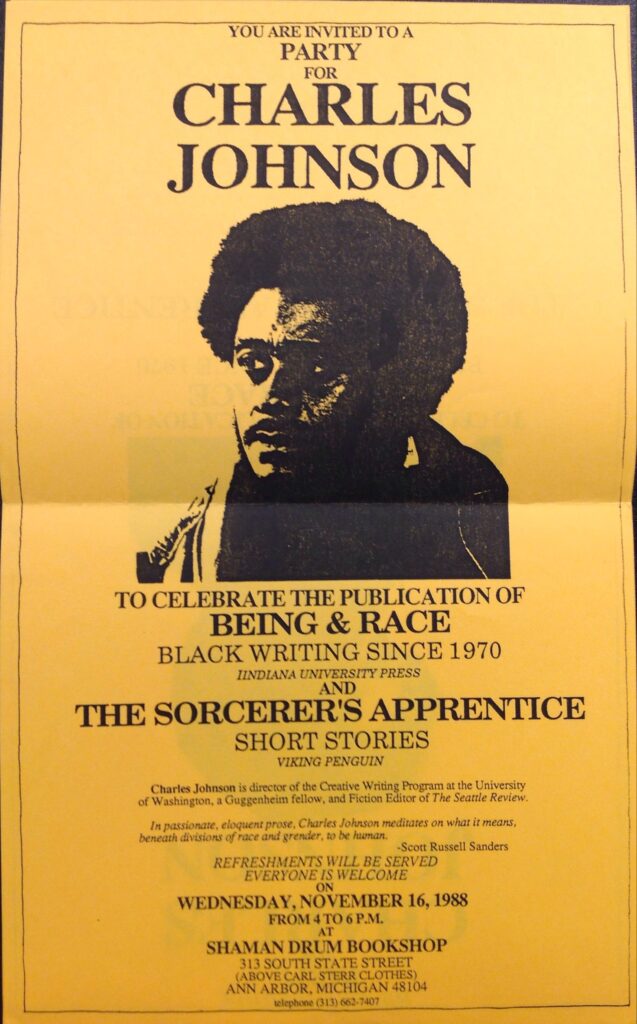
As we prepare to process the papers in order to make them accessible to students, faculty, scholars, and anyone else who has an interest, we thought we’d provide a preview of their contents with some images and accompanying commentary. If you are interested in seeing more images from the archive, you can find them online though Washington University Libraries.
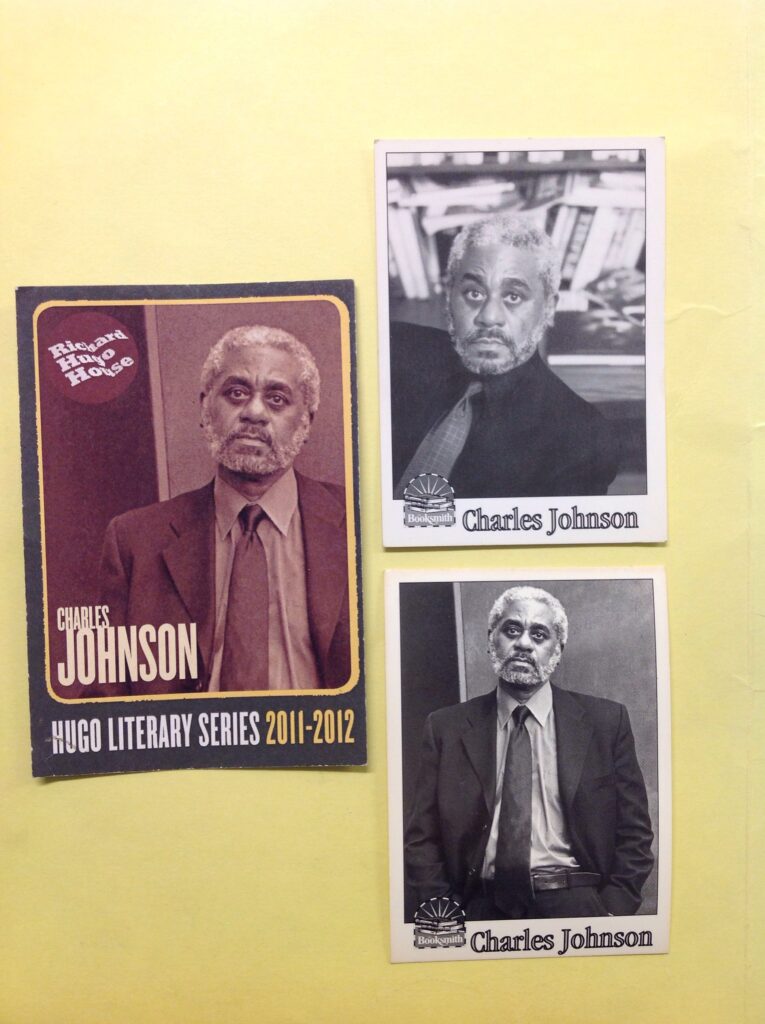
Johnson is an accomplished cartoonist, writer, philosopher, editor, and educator, and his papers are rich in all those areas. As a Buddhist with a PhD in philosophy, his foundational interests as a writer are in “that place where fiction and philosophy—both Eastern and Western—meet” [“Ars Poetica” essay, 2002], which he explored to great acclaim in his novels, Faith and the Good Thing (1974), Oxherding Tale (1982), Middle Passage (1990), and Dreamer (1998).
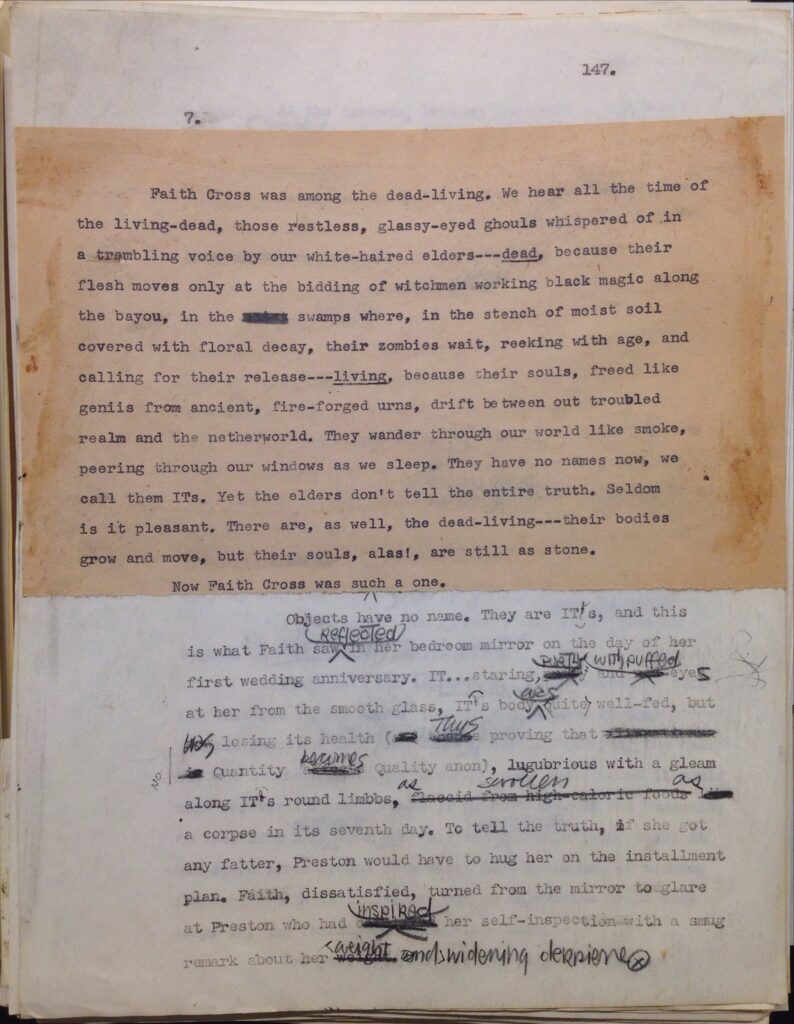
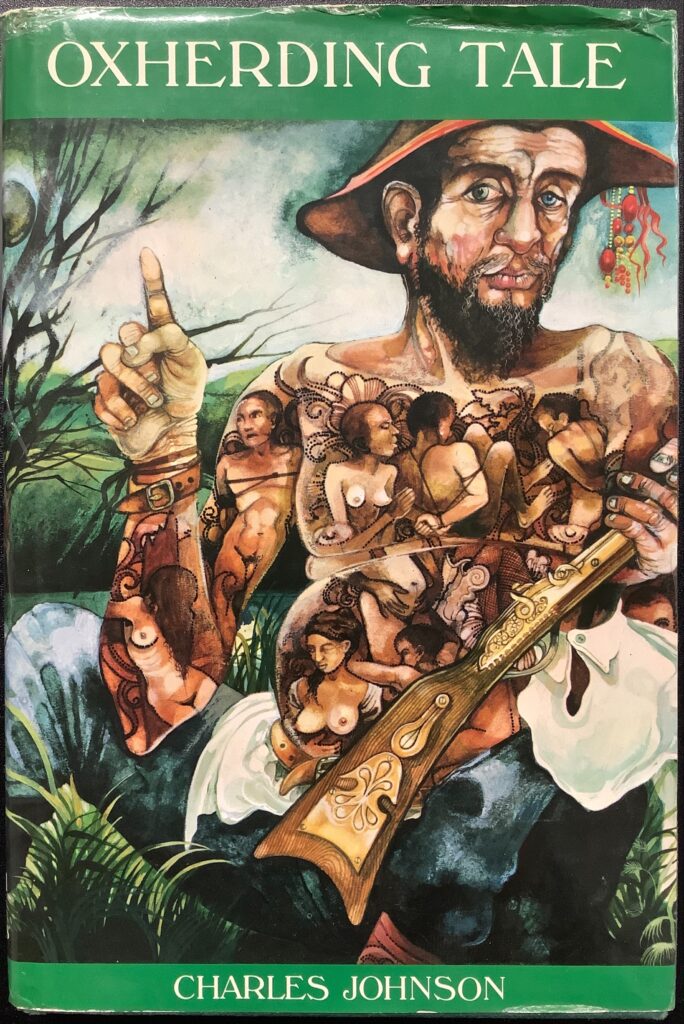
Another genre that Johnson has excelled in as he incorporates all sorts of philosophies, fables, and parables, is short fiction.
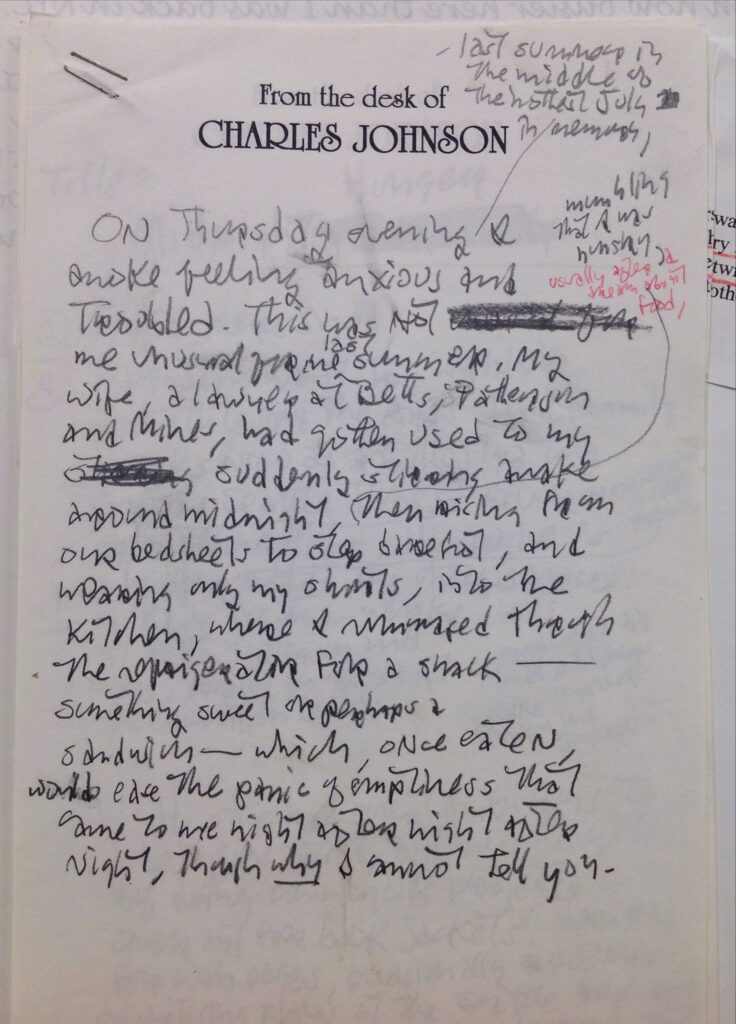
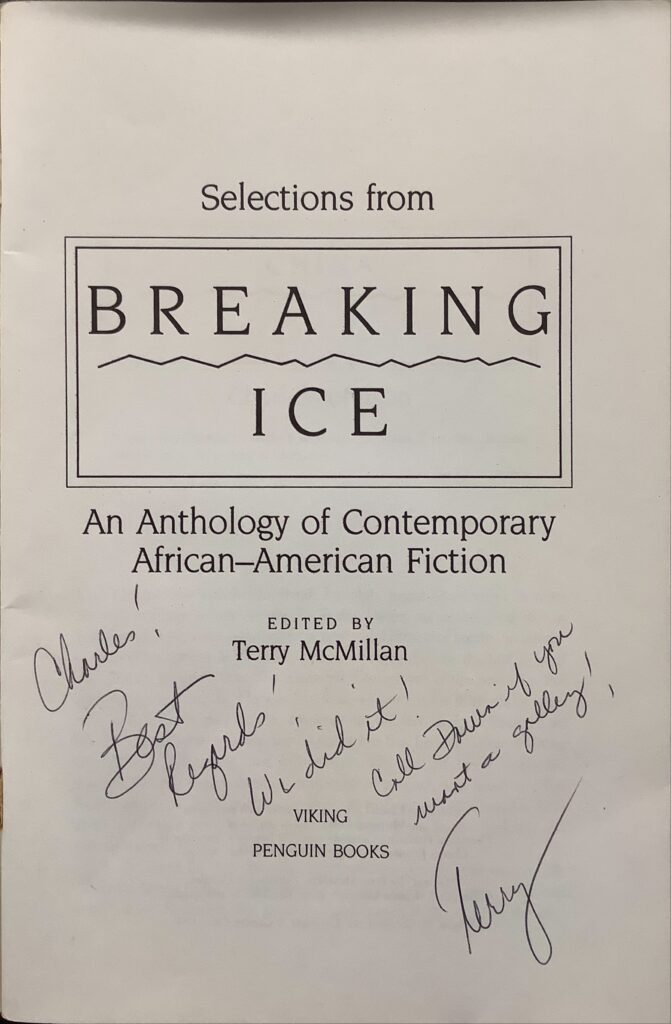
Through the years, Johnson has given hundreds of interviews in radio, television, newspapers, and scholarly journals, many of which can be found in his papers.
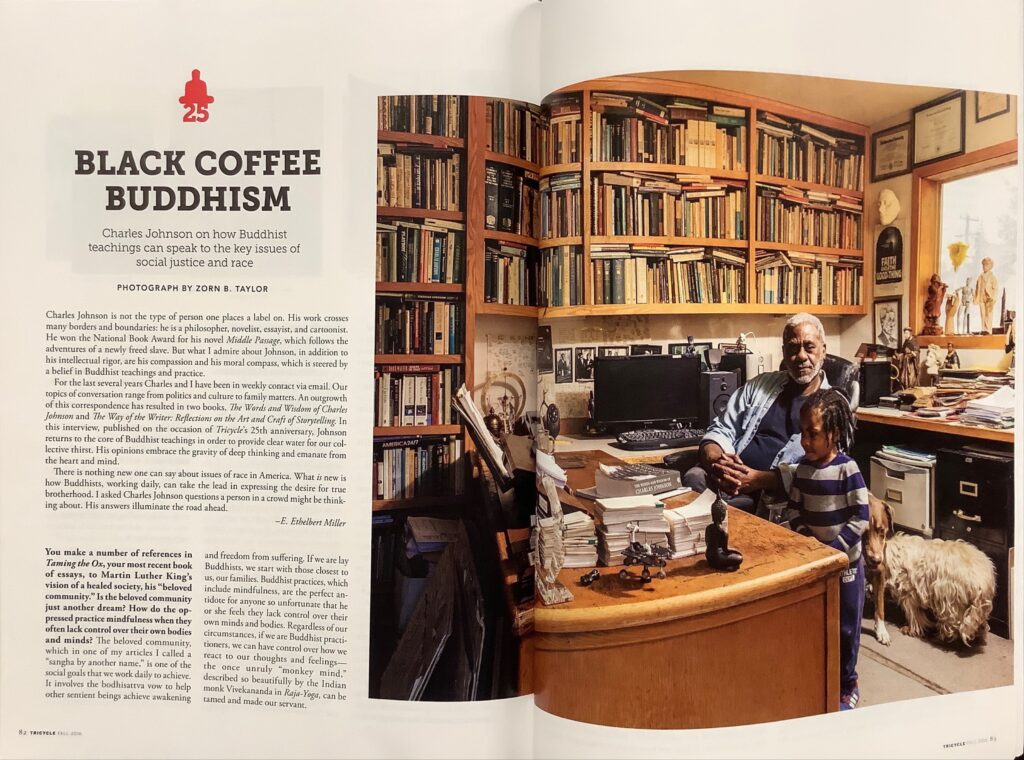
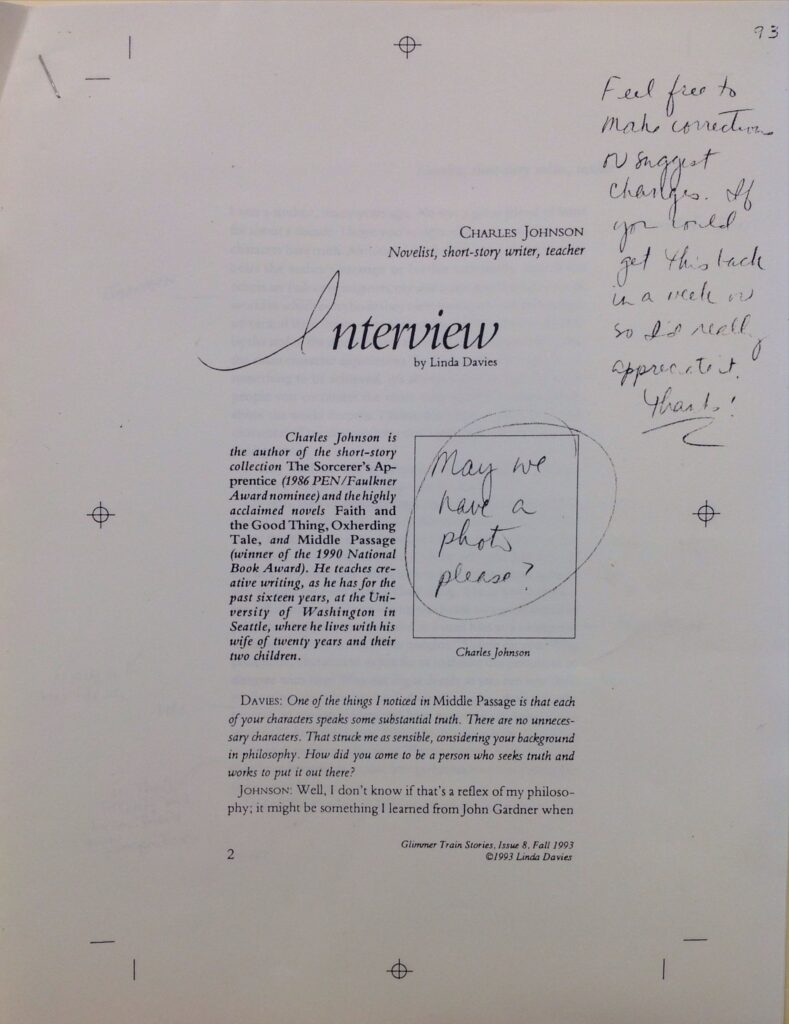
Similarly, we have drafts and reprints of many addresses and lectures.
From the mid-1970s to the early 1990s, Johnson produced numerous screenplays and teleplays, including adaptations of his own work and that of others.
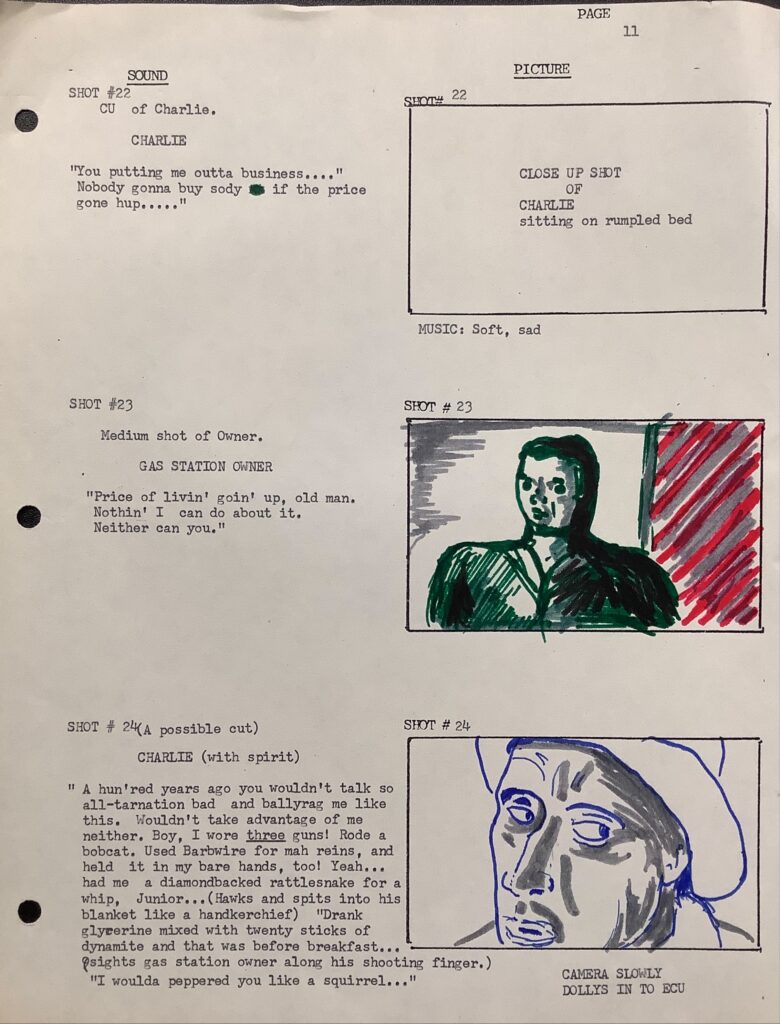
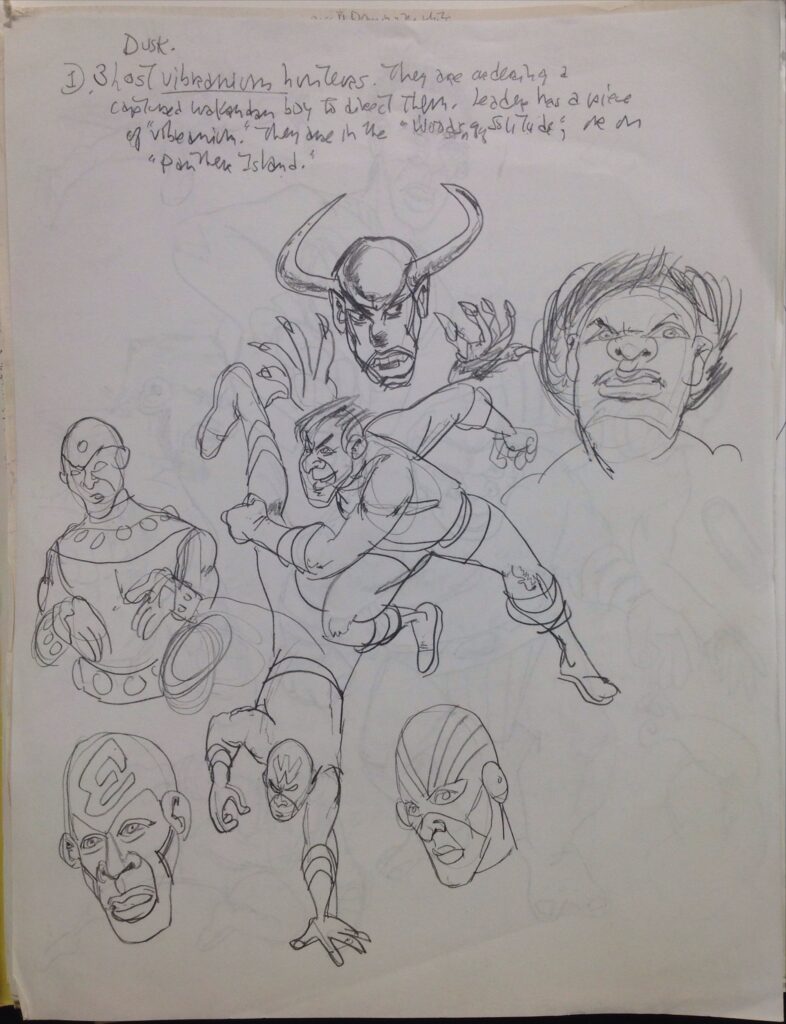
Johnson’s essays are legion and cover so many topics, including Indonesia, how to draw political cartoons, the history of Black cartoonists, Black literature since the Harlem Renaissance, film critiques, critical critiques of writers such as Ralph Waldo Emerson, Jean Toomer, Harriet Beecher Stowe, and Ralph Ellison.
Another nonfiction format he has excelled in is the book review. He has written reviews for every major newspaper in America (and a few in England), which he hopes “can serve as position papers on the nature of literary art.” [“Ars Poetica” essay, 2002]
Writing wasn’t the first medium in which Johnson found success as a storyteller and philosopher. He was publishing cartoons with social, political, and humorous outlooks in high school and throughout college, culminating in his first published book, Black Humor (1970) at age 22, and Charlie’s Pad, a nationally syndicated PBS show that aired 1970-80. His cartoon art continues to be anthologized, most recently in this year’s It’s Life as I See It which also includes an essay by Johnson.
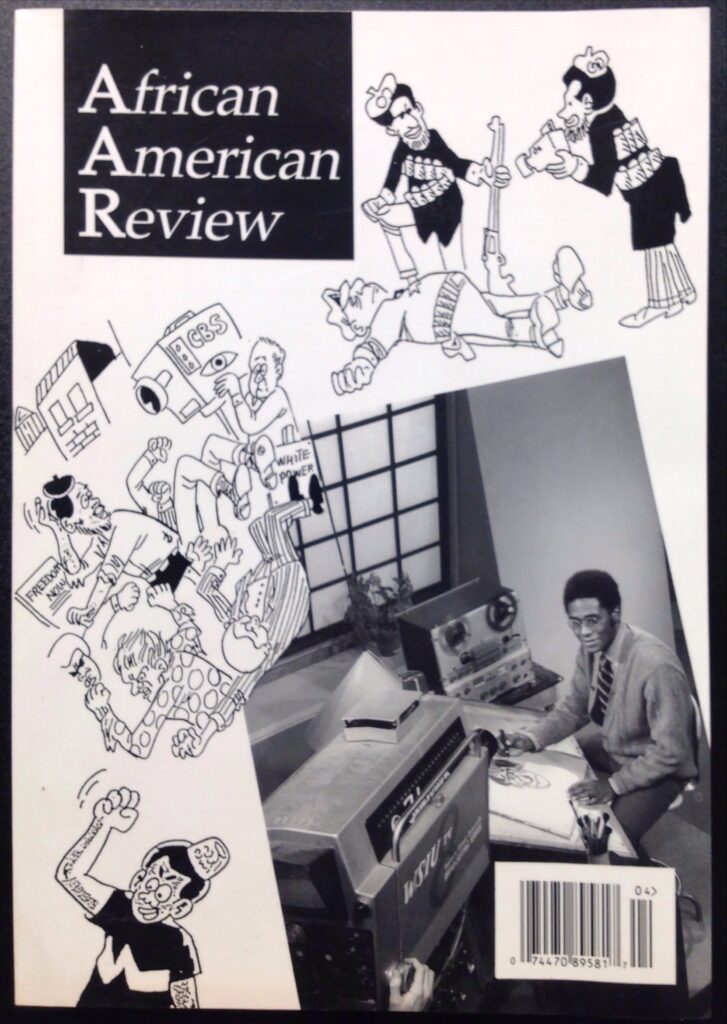
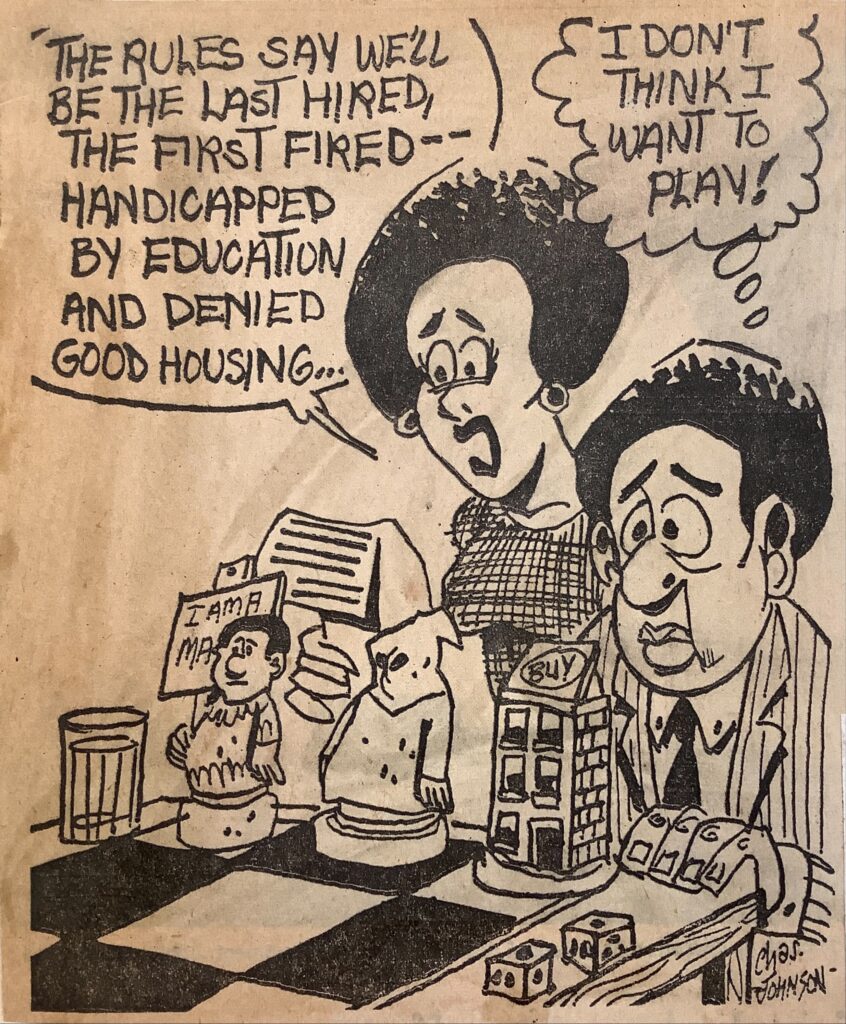
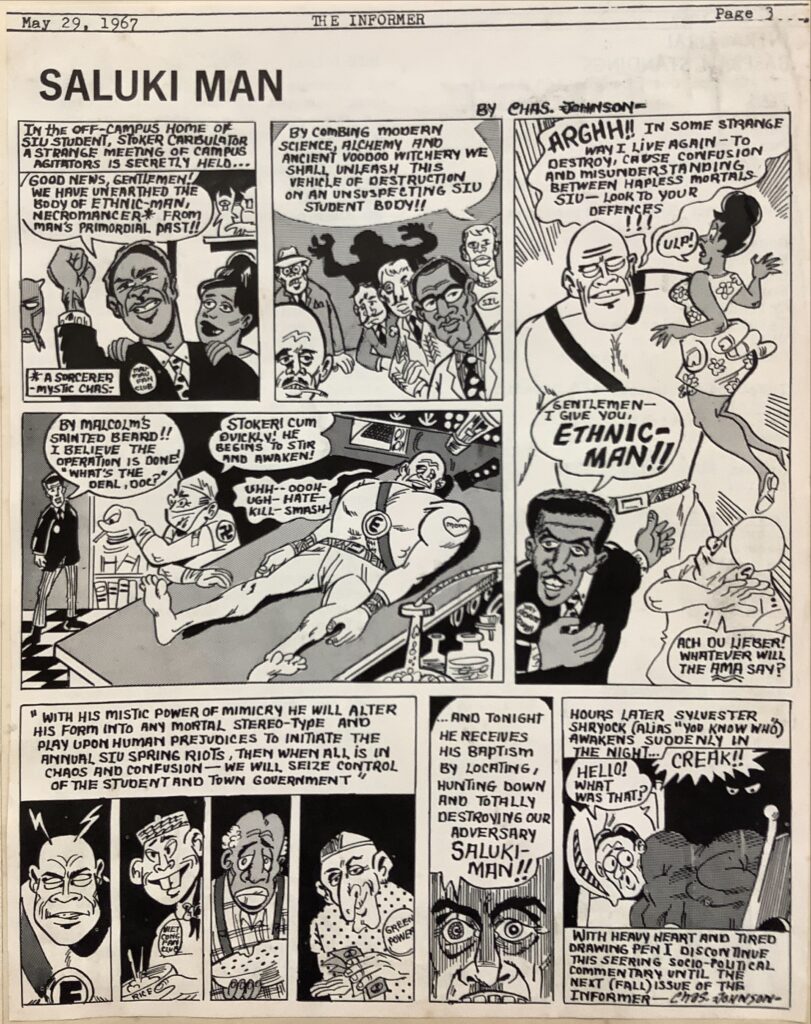
As we’ve seen, much in the papers is related to Johnson’s published work, but some of it stands on its own, such as photographs, ephemera, correspondence, notes, and journals.
When the Charles Johnson Papers are processed, you’ll find copious amounts of correspondence, most notably from his mentor John Gardner, and his close friend, the playwright August Wilson, but also many others, such as young fans and beneficiaries of his generosity, editors and publishers, and fellow fiction writers.
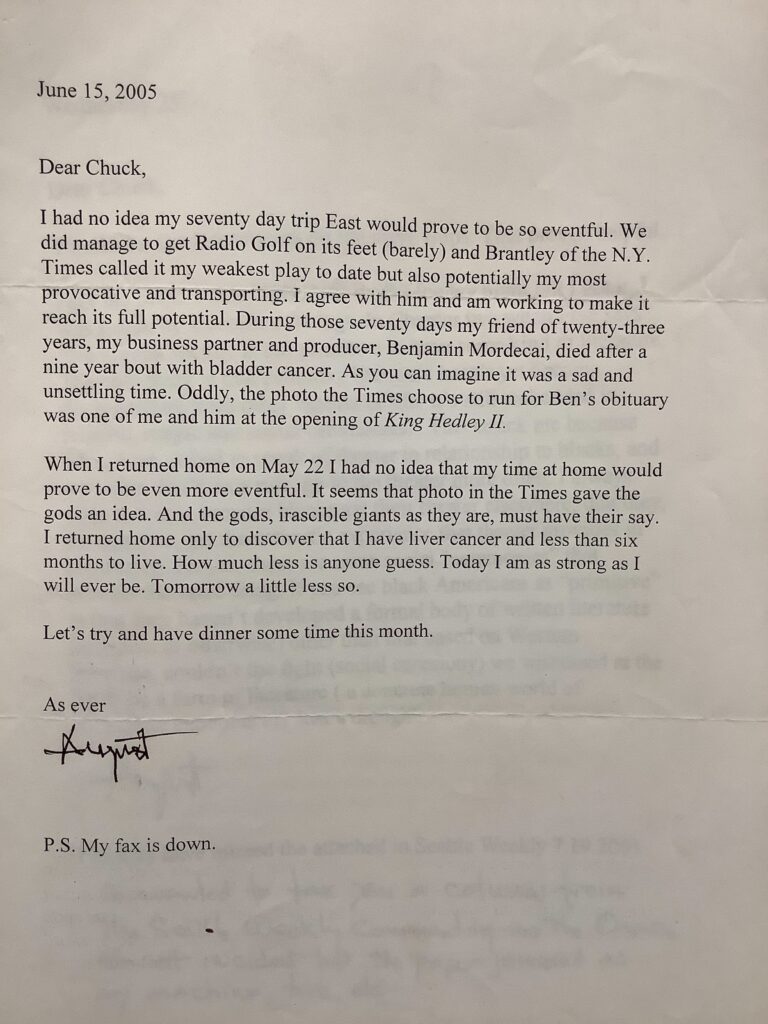
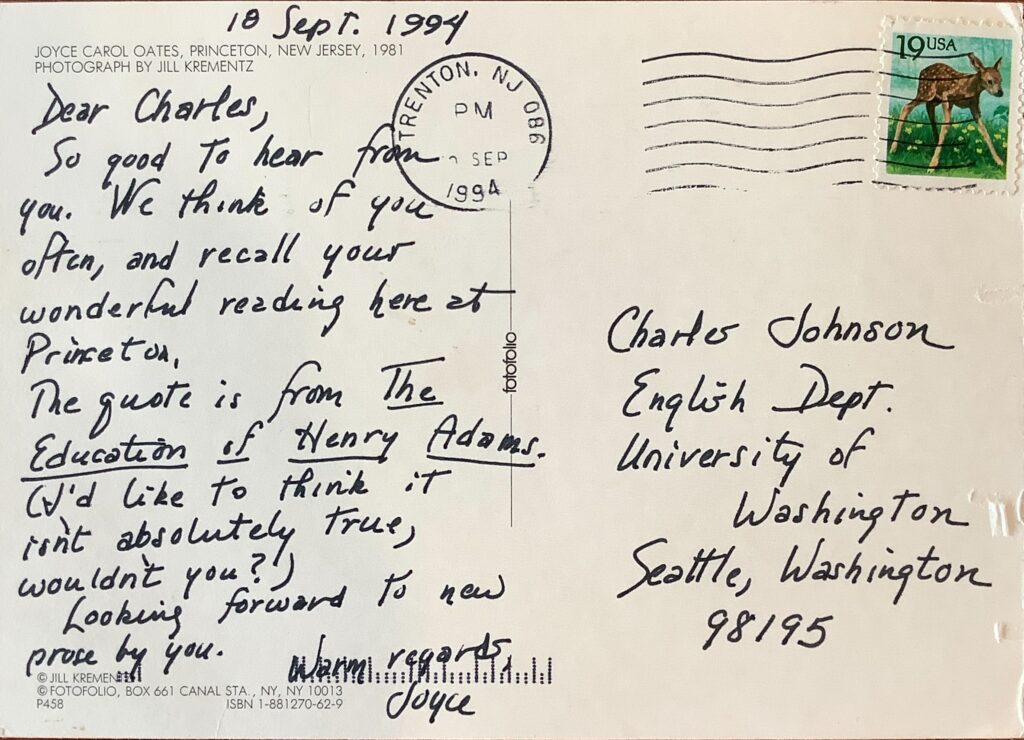
Postcard from Joyce Carol Oates to Johnson
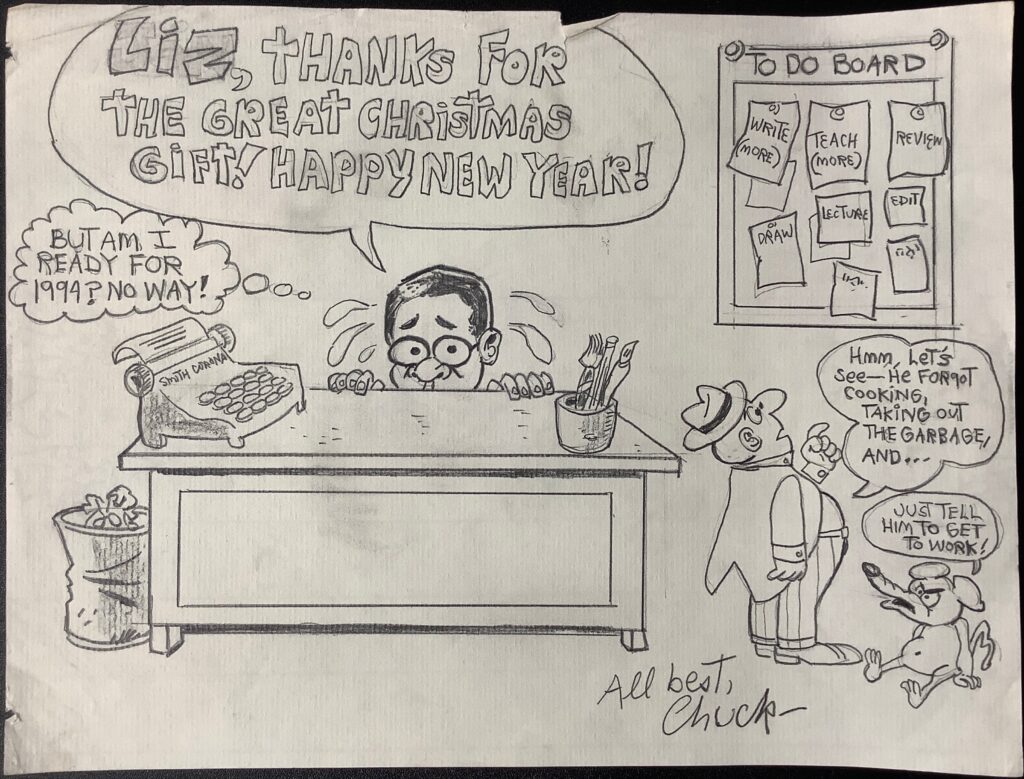
Illustrated thank-you note from Johnson to “Liz” [unidentified]
Lastly, one of the exciting aspects of this new resource in Special Collections is that many additional materials will be added in the future. A prolific journal writer for his entire adult life, Johnson still uses his journals as source material for current writing projects, and so he wasn’t ready to part with them when he sent the archive. But they, along with additional folders of correspondence and other materials, will be sent to us periodically over the years, meaning the archival resource that this renowned artist and thinker has built—as complex and intriguing as it already is—is far from complete!
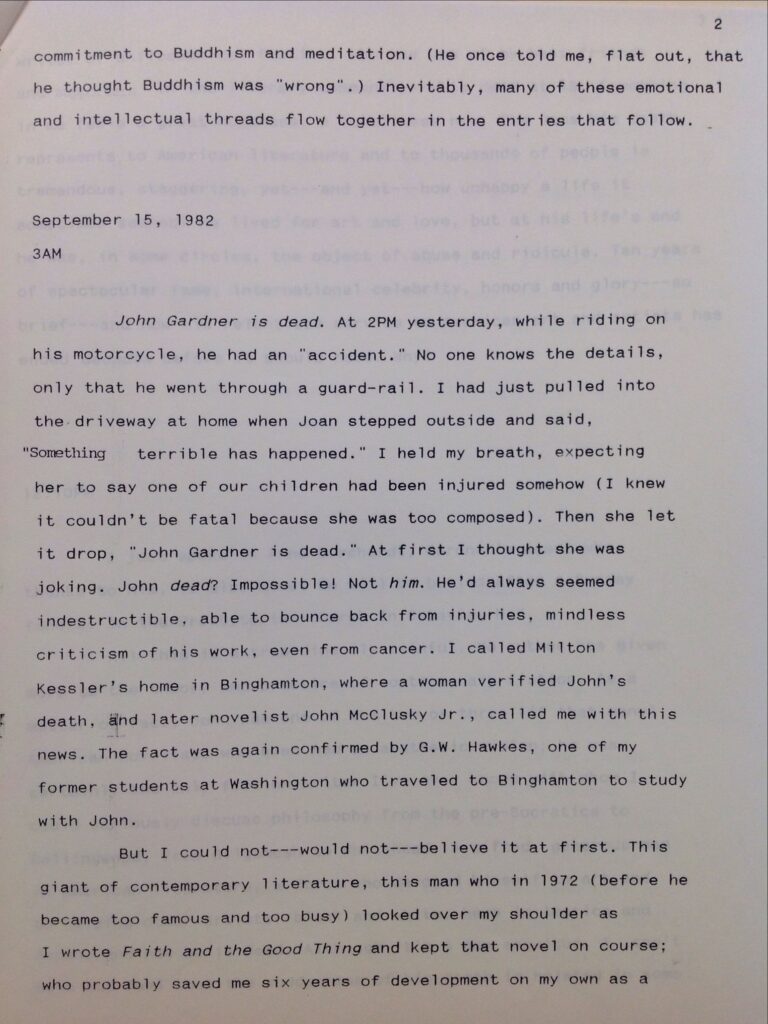
If you would like more information on the Charles Johnson Papers, including to see more images and to get updates on our progress processing the collection, please contact me at joelminor@wustl.edu. You can also check back for updates by visiting our collection page and research guide on Johnson.

